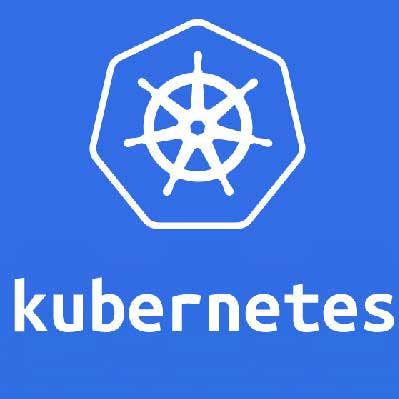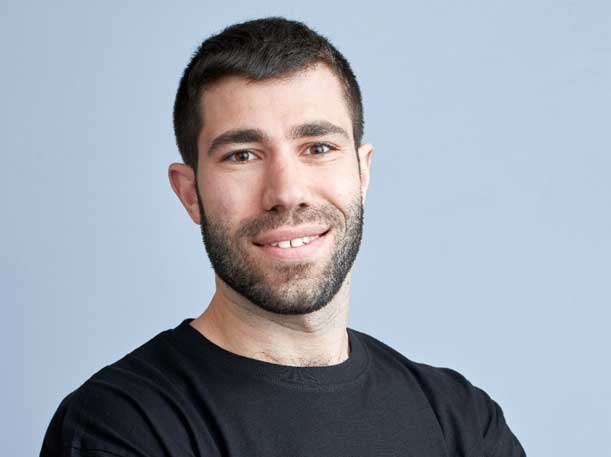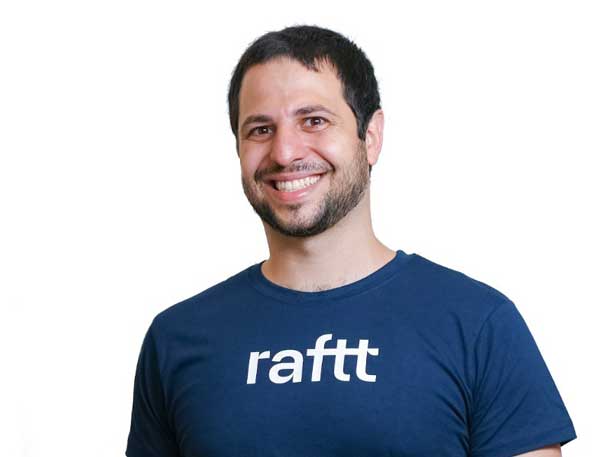The 10 Hottest Kubernetes Startups Of 2023 (So Far)
CRN reveals 10 Kubernetes startups looking to stand out in this key slice of a container management that market research firm Absolute Reports said is growing by over 20 percent annually and could reach $6.1 billion by 2028.

Kubernetes On The Fast Track
Kubernetes became a part of the software developer toolbox starting in 2014 when its original developer Google released it as an open-source version of its Borg technology, which was developed as a way to run thousands of jobs and applications across multiple clusters and machines. Since then, Kubernetes has grown to be a significant developer tool as a way to manage applications and data via containers.
Kubernetes, also known as K8s, is now a multibillion-dollar business, which is not bad for something started as an open source project. Market research firm Absolute Reports in June of 2023 estimated the value of the global Kubernetes solutions market to be $2 billion in 2022, but will grow to reach $6.1 billion by 2028, which represents a 20.4-percent cumulative annual growth rate.
Kubernetes is a key part of application development in that it provides a flexible way to automate the deployment of application code.
[Related: The 10 Hottest Kubernetes Startups Of 2022 (So Far) ]
It automates the operational tasks of container management with built-in commands for deploying applications, rolling out changes, scaling them up and down as needed, monitoring applications, and other tasks related to managing them.
While developers can manage the tasks related to Kubernetes on their own, the management takes away from their focus on their main task of writing code. For that reason, the last couple years have seen a wide range of startups enter the business of managing Kubernetes.
CRN looked at 10 startups that have only entered the business of managing Kubernetes in the last two years. These companies provide a wide range of capabilities, including just-in-time permission for security purposes, providing managed runtime services, Kubernetes message broker capabilities, and more. One company, Kubeshop, actually builds teams to tackle new Kubernetes issues found by its core team.
CRN looks at 10 startups looking to bring developers new ways to uses Kubernetes to build and deploy applications using containers to eliminate issues with the underlying infrastructure.
And here’s a fun fact about Kubernetes: In the commonly used short version of the word, K8s, the “8” stands for the eight letters between the “k” and the “s” in the full term Kubernetes.

Apono
CEO and Co-founder: Rom Carmel
Headquarters: Wilmington, Del.
Website: https://www.apono.io/
Apono develops technology to help simplify cloud access management by providing just-in-time permission management, also known as just-in-time access, which the company defines as a cybersecurity practice which grants users access to assets and resources such as applications and systems only when they need it for a limited time, and then taking it away once that time is finished. Limiting the window of time a user has access rights also limits the chance of an attacker infiltrating the cloud security perimeter. The technology also provides compliance and auditing and reporting capabilities.
The Apono just-in-time permission management capabilities can be integrated into Kubernetes clusters via self-serve granular permissions when using Slack, Teams, or from the command line interface, and for security purposes provides on-demand permissions to the relevant Kubernetes namespace, logging incidents, access received, and timelines.
Apono in early 2022 completed a $5 million seed round of funding.

Diagrid
CEO and Co-founder: Mark Fussell
Headquarters: Federal Way, Wash.
Website: https://www.diagrid.io/
Diagrid offers the ability to provide fully managed Dapr on Kubernetes service. The company was founded in 2021 by the co-creators of Dapr. Dapr, or Distributed Application Runtime, is an open source runtime system supporting cloud-native and serverless computing for building portable microservices. Diagrid Conductor removes the operational overhead to make it easier for users to run Dapr in production environments, including multi-cluster Kubernetes environments in a fully-automated manner.
Diagrid in October of 2022 came out of stealth mode after raising $20 million in Series A funding led by Norwest Venture partners. The company earlier that year received seed funding of $4.2 million.

Kubeshop
CEO: Dmitry Fonarev
Headquarters: Boston
Website: https://kubeshop.io/
Kubeshop was set up as an open source accelerator aimed at building tools for developers and testers focused on Kubernetes and cloud-native projects. The company looks for significant problems in that space and builds self-sufficient autonomous teams to build open source tools to help solve them. Its current projects include Monocle, a Kubernetes configuration analysis and version control editor; Testkube, a Kubernetes-native testing framework; Tracetest, an end-to-end testing tool that uses open telemetry traces; Kubefirst to help businesses with cloud-native journeys; Botkube, a bot for monitoring and debugging Kubernetes clusters; and Kusk, an OpenAPI-driven gateway for API-first teams.
Kubeshop has as its lead investors Insight Partners and Ratmir Timashev. Timashev, a co-founder of data management company Veeam, in early 2020 oversaw the sale of Veeam in a $5-billion deal to Insight Partners.

Memphis.dev
CEO and Co-founder: Yaniv Ben Hemo
Headquarters: Tel Aviv, Israel
Website: https://memphis.dev/
Memphis.dev develops an intelligent, frictionless, and cloud-agonistic message broker to provide a fast development and multi-cloud approach, and runs natively on Kubernetes and cloud-native environments. Memphis allows users to build modern queue-based applications that require large volumes of streamed and enriched data, modern protocols, and zero ops. The company claims it significantly cuts development time and costs while significantly reducing development time for data-oriented developers and data engineers. Memphis runs natively on and Kubernetes or Docker environments,
Memphis.dev was founded in 2022.

Mogenius
CEO and Co-founder: Gerrit Schumann
Headquarters: Cologne, North Rhine-Westphalia, Germany
Website: https://mogenius.com/
Mogenius is an enterprise-grade internal developer platform that helps reduce the work needed by software teams when developing their platform. It lets developersd orchestrate infrastructure resources, automate workflows, and speed up deployments. With Mogenius, developers can create and manage ready-for-production Kubernetes clusters on any cloud with a minimal of training and connect them to the Mogenius platform for full automation and developer self-service. It works with Kubernetes across hyperscalers, regions, and public of private clouds, and provides observability including insights from aggregated build, deployment, and runtime logs, along with service and cluster metrics.
Mogenius was founded in early 2021, had has received an undisclosed seed funding.

Namespace Labs
CEO and Co-founder: Hugo Santos
Headquarters: San Francisco
Website: https://namespace.so/
Namespace Labs is a composable and extensible development platform to help automate development, testing, and production workflows. Namespace Labs provides development environments, remote builders, ephemeral environments, managed CI (continuous integration) runners, and more. The company claims this allows faster and more debuggable GitHub actions, high-performance builds, fast and secure previews for developers, and the ability to set up and deploy a disposable Kubernetes cluster within seconds.
Namespace received seed funding in late 2021.

Palark
CEO and Co-founder: David Magton
Headquarters: Baden-Wurttemberg, Ulm, Germany
Website: https://www.palark.com/
Palark offers DevOps as a service as a w ay to help businesses focus on applications without fussing over infrastructure, operations, CI/CD (continuous integration and continuous delivery), and related best practices. The company audits existing or planned infrastructure, application architecture, and development and deployment processes, and then provides recommendations for application design and “kubernetisation.” It then builds a scalable Kubernetes-based infrastructure, and then migrates applications and provides on-going operations.
Palark was launched in 2022, but its team has been working together since 2008 to support open source technologies for business infrastructures.

PerfectScale
CEO and co-founder: Amir Banet
Headquarters: Raleigh, N.C.
Website: https://www.perfectscale.io/
PerfectScale provides comprehensive visibility and data-driven intelligence across large-scale distributed system to help businesses track usage patterns and configuration trends over time to help DevOps and SRE (site reliability engineering) teams have the needed data to right-size their Kubernetes environments. The company’s technology aims to reduce the cost of working with Kubernetes by generating a comprehensive cost breakdown and providing recommendations for eliminating waste and cutting costs without impacting performance. It can also be integrated into existing engineering workloads and toolsets to help prioritize, triage, and track issues, remediations, and required system configuration changes to improve Kubernetes governance.
PerfectScale was founded in 2021.

Raftt
CEO and Co-founder: Roy Iarchy
Headquarters: Tel Aviv, Israel
Website: https://www.raftt.io/
Raftt develops technology aimed at making it easy to move runtime development environments to the cloud and code, test, and debug using existing local tools. It handles adapting Kubernetes environments for developing to allow out-of-the-box hot-reloading of code and debugging on Kubernetes clusters. The company’s cloud-based platform moves beyond the limitations of hardware and local environments to let users spawn an unlimited number of environments while collaborating and sharing, all without the need to sacrifice stability and performance. Raftt promises zero feedback time when developing in a remote environment by making changes to the code in integrated development environments (IDEs) are instantly reflected in the production-like cloud environment.
Raftt, which was founded in 2021, late last year raised $5 million in seed funding.

Robusta
CEO: Natan Yellin
Headquarters: Tel Aviv, Israel
Website: https://home.robusta.dev/
Technology from Robusta lets users see all their clusters and alerts in a single console, and gives them the ability to group similar issues to reduce alert fatigue. The technology drills down to the pod level to provide information on metrics, logs, and events. Robusta provides alerts when something is wrong, as well as details about why there is an issue, or it can interface with alerts from other applications. It can also correlate failures with configuration changes. The company claims it can set up Kubernetes monitoring in under an hour, and can analyze historical Kubernetes usage to reduce over-provisioning.
Robusta was founded in 2021.